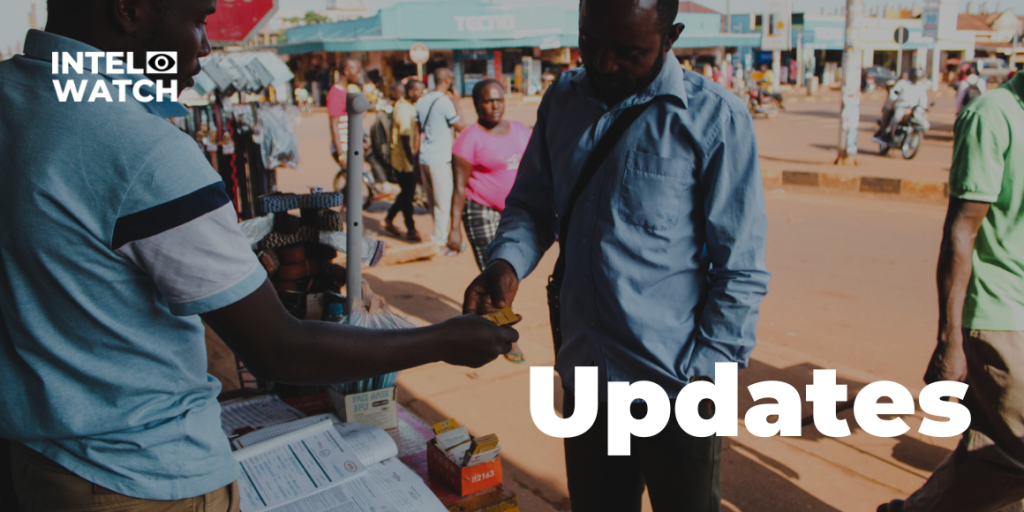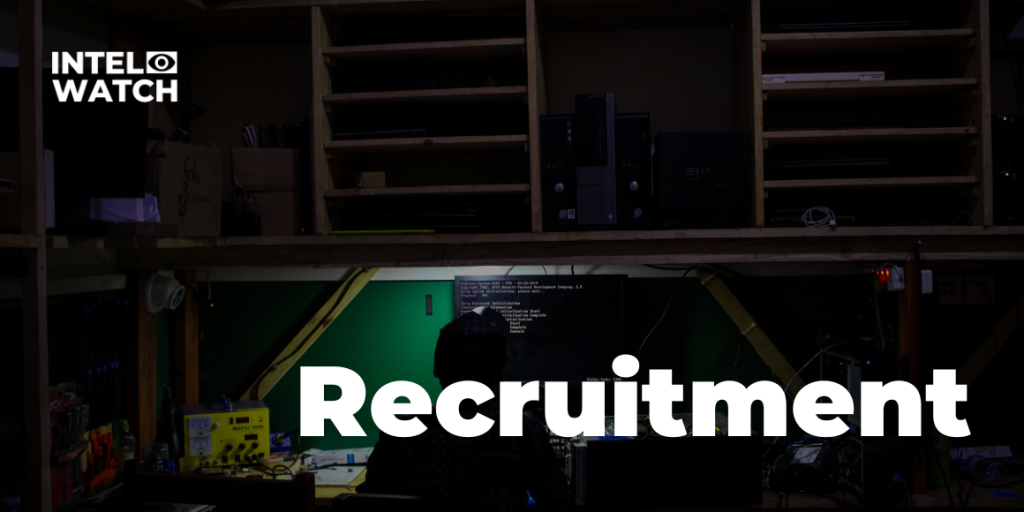Op-ed | The Angola-US honeymoon — political amnesia and moral decay
This piece by Paula Cristina Roque was first published by Daily Maverick.
This type of relationship has been a realpolitik practice of many democracies’ engagements with autocratic, corrupt and failing states. Here’s why it is a problem.
President Joe Biden’s visit to Angola this week, his first to Africa, has sparked much debate on a new way forward in the US’s foreign policy towards the continent. Africa’s importance has increased in the context of enhanced geopolitical rivalries that have fragmented and outmanoeuvred the US’s global dominance, influence and political permanence. For 50 years, Angola’s ruling MPLA party was Russia and Cuba’s closest military ally on the continent. In 2002 China rapidly became its largest trading partner and financier of infrastructure and post-conflict reconstruction projects. Today, in a chaotic post-globalisation stage an alliance with the US gives the Angolan regime the political cover to remain in power under the guise of bringing investments from Western and democratic donors.
This presidential visit, the first since 2015, shines a light on a regime that is authoritarian, weak, securitised and embattled, and a relationship built on extractive and transactional interests. The logic of rather having a Western-leaning dictator than a Russo-China aligned dictator should no longer be an excusable explanation of the support given to governments that retain power through force, coercion, cooptation and institutional failure.
Biden is the first US head of state to visit Angola in what is a hugely symbolic visit meant to counter Russian and Chinese influence in Africa. Angola, like many other authoritarian governments – such as Rwanda and Uganda – exploit these geopolitical rivalries to ensure regime survival at the cost of democracy, equitable development and human rights.
This new US-Angola relationship is based on four main priorities. The first involves the trans-African railway – the Lobito Corridor – the US’s largest infrastructure investment in Africa aimed at challenging China’s Belt and Road Initiative. The project will link the Atlantic and Indian oceans, securing critical minerals along the way. The second is Angola’s importance in stabilising central Africa and acting as a mediator in several of the region’s conflicts. The third is a continuation of the US’s pursuit of energy security and the last aims to counter Russian’s new defence and economic encroachment into Africa. So why now?
Washington came to the aid of Luanda in August 2022 when the MPLA lost the elections to an opposition coalition led by Unita (which during the Cold War had been a strategic US ally). The US recognised the illegitimate government in exchange for the signing of defence, energy, economic and regional security agreements that had been shelved for decades during President José Eduardo dos Santos’s tenure. Since 1993, when President Bill Clinton recognised the MPLA as Angola’s government forestalling a balanced and fair resolution to the war, the US has tried to find an ally in Angola. This would only happen in 2022, when the MPLA was weaker, more factionalised, fearful of a population that voted against it, experiencing a permanent recession, and running out of enough oil revenues to sustain a kleptocracy, support an inflated security apparatus, and repay its sovereign debt. The US gave President João Lourenço a lifeline.
The shift was astounding. For months Angola refused to condemn Russia’s invasion of Ukraine, a testament to its loyalty to Vladimir Putin. Yet a few weeks after the August 2022 elections, Angola issued a statement criticising Russia and calling for the respect of Ukraine’s sovereignty. Months later, Luanda would receive high-level visits from both Defence Secretary Lloyd Austin and Secretary of State Antony Blinken. American investment skyrocketed and so did a realignment of interests.
Economic interests
The $2-billion investment in the Lobito Corridor linking Angola to the rich mines of Zambia and the Democratic Republic of Congo (DRC), will cover more than 1,300km and is expected to transport millions of tonnes of copper, cobalt, lithium, niobium and other critical minerals for the renewable energy and electric vehicle industries. The Lobito Atlantic Railway consortium, composed of Trafigura (45.5%), Mota-Engil (45.5%) and Vecturis (1%), has a 30-year contract to manage the project. Trafigura is returning to the country where its decade-long monopoly of the supply of petroleum products transformed the Swiss group from “a scrappy trader into a global commodity giant” (Financial Times). Its record for financial transparency and ethical business is dismal.
Another key infrastructure project is the construction and use of a $3.5-billion oil refinery in Soyo which will have the capacity to process 150,000 barrels of crude oil per day. Other energy related investments include EXIM bank’s credit line for a $907-million solar development project, and a $1.6-billion loan for the construction of solar photovoltaic energy grids that will power water collection and treatment. This project involves a partnership with Omatapalo, a company linked to Lourenço.
The US is also supporting projects aimed at countering Chinese telecommunication dominance, with American firm Africell becoming Angola’s first foreign mobile phone operator, using Nokia technology rather than Huawei. Angola’s bankrupt state-owned airline TAAG also recently signed a $3.6-billion contract with Boeing for the purchase of 11 planes, when it was scheduled for privatisation due to severe financial problems. These investments are partly aimed at removing China as Angola’s largest trading partner, a title it has held since 2008.
Defence
On defence issues there are several overlapping interests. Angola has an impressive intelligence and security apparatus, the region’s strongest army and airlift capacity. It does, however, have some fragilities regarding maritime security, cyber defence and space cooperation, all of which the US is happy to assist with.
In June 2024 Angola and the US established a joint defense cooperation agreement, deepening collaboration and aimed at the purchase of US defence equipment and aligning intelligence priorities with the USAfrica Command (Africom). In December 2022 Angola became the third African country, after Rwanda and Nigeria, to join the Artemis Accords that guide space exploration cooperation. Further to that, and the lucrative purchasing of weapons systems, technology and attached training, the US will gain a strong stabilising force in central Africa.
Angola’s pivotal position in central and southern Africa gives the Pentagon and the intelligence community the regional ally it was missing.
Luanda has great convening power and is active in mediation efforts in the DRC, where it has tremendous influence. Angola is known in the region as the kingmaker through decades of influence in Kinshasa and Brazzaville. The expanding influence of Russian military operations and private security companies in the region is a cause for concern, one that the US aims to outmanoeuvre with new African defence alliances. Part of this is aimed at also securing partners in the global war on terror, such as Kenya which has for decades renditioned, shared intelligence and eliminated terrorist threats in the region with US training and support.
Read more: On 11th-hour visit to Angola, Biden pledges lasting support to Africa
In May 2023 Luanda hosted a Directors of Military Intelligence conference, hosted by Angolan intelligence services and Africom, aimed at developing solutions to radical Islamist insurgencies like al-Shabaab, Boko Haram, Islamic State and Ansaroul Islam and their expansion on the continent. Angola’s pivotal position in central and southern Africa gives the Pentagon and the intelligence community the regional ally it was missing.
Why is this relationship a problem, when it has been a realpolitik practice of many democracies’ engagements with autocratic, corrupt and failing states?
First, it delays the inevitable and peaceful removal of a ruling party that has overstayed its welcome. Just look across the continent at Mozambique where Frelimo’s attempt to stay in power after the October elections has led to mass protests paralysing the country and its economy, and resulting in mass human rights violations. Despite the MPLA’s long held visceral belief that Angola belongs to it, it cannot realistically govern eternally. The 2027 elections will unseat Lourenço and, if badly managed, trigger a brutal and bloody clampdown.
All these loans will only increase Angola’s debt, even if oil prices continue to rise.
Second, geopolitical rivalries have always benefited the elites and not the people of Angola. Today Angola is poorer, more unequal and more repressive since achieving peace in 2002. The scramble for critical minerals to feed the West’s green transformation industry will weaken efforts to mitigate climate change and unite behind a strategy that is continental and not bilaterally extractive, and will have long-term economic consequences. It opens a new phase of eco-colonialism on the high-value minerals that will continue perpetuating cycles of poverty, inequality and political pillage.
Third, all these loans will only increase Angola’s debt, even if oil prices continue to rise. In 2022 Angola’s external debt, according to the World Bank, stood at $60-billion, of which $21-billion was owed to China. Instead Angola will now owe the US several billions of dollars which will force it to remortgage its natural resources, failing to diversify its economy, to create jobs and implement pro-poor development priorities.
Last, any US military training and defence transformation efforts are only likely to entrench securitisation and repression, as seen in Uganda and Egypt, where the ruling parties use US military aid to neuter opposition voices and suppress democratic reform. While Lourenço believed he could begin a rapprochement with Washington and instrumentalise rivalries between the US and Russia and China to his benefit, he may have merely achieved short-term survival and assurances of control.
Realpolitik, as Unita learnt from its dealings with the Reagan, Bush and Clinton administrations, tells us that the US has permanent interests not permanent friends. For those of us who remember well Angola’s deep ideological and existential divisions during the Cold War and the brutality of a civil war that was also a proxy conflict of narrow geopolitical and economic interests on all sides, this visit feels very familiar. It’s a reminder of several international betrayals. A betrayal of principle, of history, of a people abandoned to poverty, of the unemployed youth, of civil society fighting for human rights, of reformist politicians who still believe in democracy. DM


